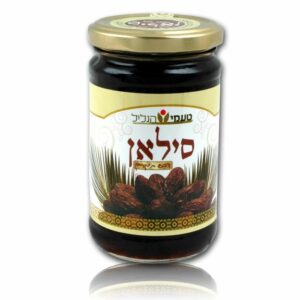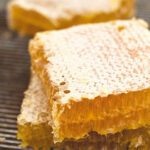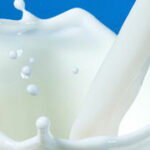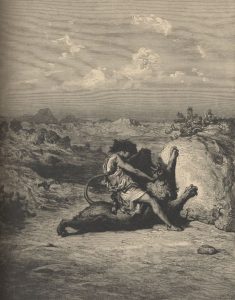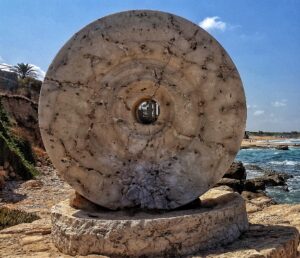Below is a great discussion about Old Sephardic Customs of S&P community in London
London Sephardi Minhag
Tephillin
|
Hand Tephillin
The illustration above, by non-Jewish artist Bernard Picart, though not accurate, certainly resembles the second photo below rather than the first (note the straps to and from the index finger).
Note: Picart’s illustration shows the tephillin worn on the right hand. I have inverted it so it can be more easily compared with the photos below, which show tephillin worn on the left hand, as is correct for most wearers.
Up until the wrist there is no dispute. Like all Sephardim the S&P wind the strap out and over the arm, and back in under it. The difference occurs after the index finger:
Note: A minor additional point is that the index finger windings were originally one winding round each section of the finger (lower picture), until Ben Ish Hai changed it to one around the middle and two around the lower section (upper picture).
|
Head Tephillin
The main point to make here is not a particularly S&P one. It is that virtually all Sephardim and Ashkenazim used to use a type of knot that looked like a square made of 4 smaller squares (left). This was referred to as a Hebrew letter Dalet, because the lower straps come out of it at right angles, like a Dalet.
The reference in the sources to a “Dalet-shaped knot” was misunderstood, and eventually led to the invention of a new and unwieldy knot that indeed itself looks like a Dalet (right). Many people who originally wore the old knot have now changed to the new one (or been changed to the new one by overzealous soferim without their knowledge), under the erroneous impression that it is the authentic “Dalet-shaped knot” – which it is not (knot).
Picart’s illustration presents us with another problem. He shows a tricorn hat worn along with the head tephillin, which is significantly lower on the forehead than the position recommended in traditional sources: the natural hairline.
So, either they wore their head tephillin (as in the picture), lower than tradition tells us to, or perhaps the picture is inaccurate and they wore the tephillin in the traditional position with their tricorns tipped back.
In New York today, the soft hats worn by the clergy and congregants can be tipped back, allowing for tephillin to be worn level with the hairline. In London, where stiff top hats replaced tricorns long ago as the only hats worn in synagogue, they are today done away with altogether on weekdays, but a few decades back they were in fact worn precariously tilted back to allow for the correct positioning of head tephillin.
|
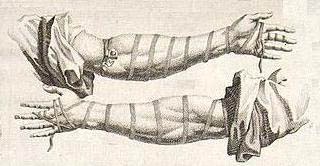
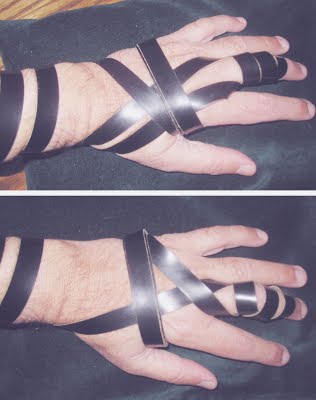
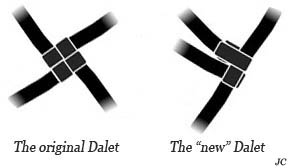
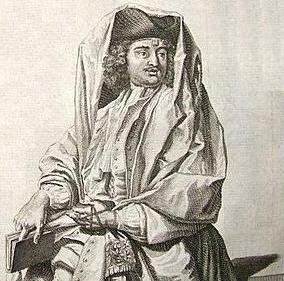
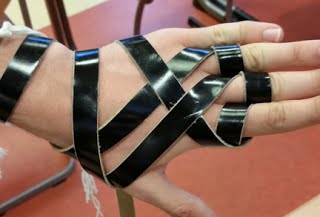
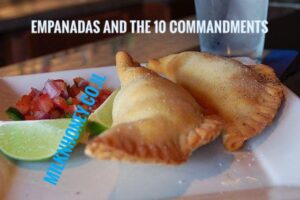

 Riesh Lakish was an Emora during the Talmudic period. He says that he saw a lamb grazing under a fig tree dripping with honey. The lamb itself was dripping its milk onto the honey. He said that this represented the land flowing with milk and honey. (Ketubot 111b)
Riesh Lakish was an Emora during the Talmudic period. He says that he saw a lamb grazing under a fig tree dripping with honey. The lamb itself was dripping its milk onto the honey. He said that this represented the land flowing with milk and honey. (Ketubot 111b)